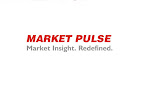 Mystery shopping is a tool used externally by market research companies, or internally by
companies themselves to measure quality of service, or compliance with service guidelines
or to gather specific information about products and services. [1]
Mystery shopping is a tool used externally by market research companies, or internally by
companies themselves to measure quality of service, or compliance with service guidelines
or to gather specific information about products and services. [1]
Market Pulse took this basic
form of research a step further & created an online application. A unique
Solution to address the challenges was implemented. This was shortlisted by
MRSI as one of the Top 5 technology solutions for market research.
A leading paints company launched their programme in 2012 to enhance the
effectiveness of their modern trade exclusive outlets. These stores
were given a set of guidelines to adhere to. These guidelines related to aspects
such as store tangibles as well as responsiveness and empathy of the store
advisors.
Market Pulse was commissioned to conduct a
mystery audit of these stores; this audit ascertained the level of adherence to
performance standards of the stores. This is a pan India assignment which is conducted
quarterly. The coverage was in more than 125 outlets in 72 cities.
Market Pulse split up the audit process into 2
phases – store audit of tangible parameters and a mystery audit of staff
responsiveness & empathy. Different auditors are used for these two phases
and the audit of tangibles was made into a surprise but announced audit. The
methodology for the store audit of tangible aspects has been changed from a
mere observation technique to visual capture of all tangible aspects with a
digital camera. Approximately, 35 – 40
photographs are taken of different aspects ranging from hygiene and store
arrangement to availability of retail merchandize. The audit team goes through
a rigorous training workshop for digital capturing of store tangibles.
Market
Pulse created an online application which showcases all the store ratings along
with visual evidence of store tangibles on the firm’s portal. This can be accessed by anybody with a valid
login ID from any location in India. The administration of the website rests
with the research team of Market Pulse and the main user team of the client.
Visual
dissemination of store performance in the mystery audit has helped increase
usage of marketing research and its integration with a successful roll-out of
an extensive marketing programme of the client. The client is delighted with the application
and has shared it with their global office. The online application has helped
popularize the programme throughout the Client organization.
This application is now being extended to
another marketing programme that targets the general trade.
We at Market Pulse, constantly try to bring new ideas to the
field of research.


